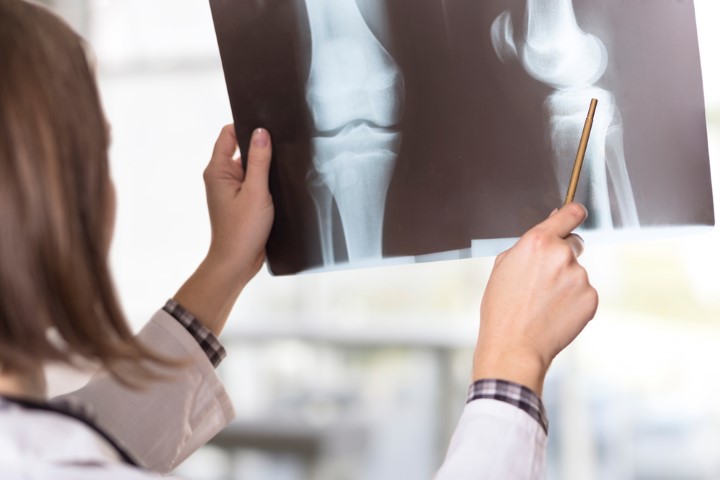There is a strong link between osteoporosis and menopause. When a woman goes through menopause, the amount of estrogen produced by her body decreases significantly and since estrogen is a crucial component of bone density, this dip in estrogen can initiate a period of bone loss. Osteoporosis is commonly referred to as a “silent disease” because its symptoms may not even become noticeable until the bones become so weak that a seemingly minor bump or fall causes a fracture. If you have been diagnosed with osteoporosis, it’s crucial to be proactive and work hard to slow the progression of this disease before it leads to serious difficulties.
Fortunately, there are several things that you can do at home to help slow down the progression of osteoporosis and we’ve put together some suggestions to help women fight off osteoporosis and bone loss.
Load up on Calcium and Vitamin D
It is widely known that calcium helps build strong bones, but vitamin D is equally important for helping the body absorb calcium. Especially recommended for women in the post-menopause phase, 1,200 milligrams calcium and at least 400 IU to 600 IU vitamin D daily should be consumed to promote better bone health. In addition to low-fat dairy (like milk and yogurt), salmon, and green vegetables (like spinach, collard greens and broccoli) can be great sources of calcium. To ensure a daily intake, many women often additionally take Calcium supplements which are a good option.
Exercise Regularly
Regular weight-bearing exercise can help rebuild bone that has been lost due to osteoporosis. Even low impact exercise like walking or light aerobics can make bones and muscles work hard enough to begin strengthening the body. Exercises for the lower back and abdomen, as well as yoga and Pilates, that can help strengthen the core and spine, are also highly encouraged (just be sure to consult with your doctor beforehand to ensure you are healthy enough to safely exercise).
Limit Salt Intake
It is not completely known whether salt can lead to osteoporosis, but there is a link between high sodium intake and bone loss, especially for people with high blood pressure. Salt increases the amount of calcium excreted when a person sweats or urinates, which can expedite bone loss for people who are already deficient in calcium.
Resist Smoking and Drinking
Quitting smoking is an essential step for rebuilding bone strength and density. Since nicotine is toxic for bones, there is little calcium and exercise can do to help if you are currently smoking. Alcohol, in moderation, is okay, but consuming alcohol in excess can contribute to additional bone loss. Combining excess nicotine and alcohol consumption can have serious long-term effects on bone density that are nearly impossible to recuperate from.
An osteoporosis diagnosis is no laughing matter, but it also doesn’t mean there is nothing you can do. Take extra good care of yourself, eat right and do whatever is needed to build your bones back up to get your condition under control. For more info, do not hesitate to contact Dr. Kristine Gould at Gynecology Associates of Gwinnett today.


